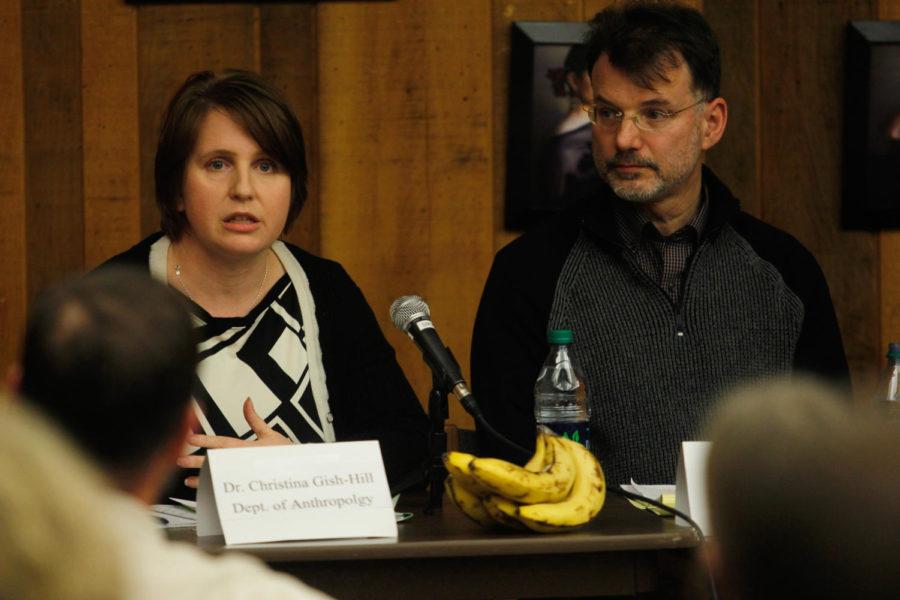Panel discusses ISU GMO research on bananas
March 25, 2015
Students and faculty discussed the ethics and effectiveness of genetically modified banana research being conducted at Iowa State University.
“There’s no way to know how effective this is until research is done and data is collected,” said Clark Wolf, professor of philosophy.
With Wolf, Christina Gish Hill, professor of anthropology. and Naboth Bwambale, graduate assistant of sociology, and former Ugandan resident formed a panel meant to critically analyze Wendy White’s, associate professor of food science and human nutrition, research on genetically modified bananas being developed for Ugandan farmers.
“Introduced food can be an important part of that area’s development,” Wolf said.
Originating at the Queensland University of Technology in Australia, the genetically modified banana is designed to hold higher levels of vitamin A, a lacking vitamin in Uganda that leads to malnutrition. At Iowa State, White has begun human testing on voluntary ISU students consuming the banana.
“My experience shows that our issue is not that we don’t produce enough food, but that we do not possess the infrastructure to distribute it,” Bwambale said.
All three panelists’ views ranged from neutral to against the genetically modified bananas. While this may seem one-sided, the panel’s organizers invited several individuals involved with the research, including White, to participate in the panel, but they either refused or couldn’t make it. For this reason, much of the panel discussed the inefficiencies of conducting the research.
“Just because the food itself is culturally appropriate, it doesn’t mean the GM [genetically modified] food itself is appropriate in that country,” Hill said, discussing the possibility of Ugandans refusing to grow the modified crop. “People simply might not eat it. They might not choose it.”
Other criticisms included the overall effectiveness of the research. Bwambale said 90 different varieties of banana exist in Uganda, and one new banana type to replacing them all is unlikely. Bwambale also said he felt that using ISU students as test subjects for the banana’s benefits and safety was unwise because of the naturally different environment and immune systems each group possesses.
“They are not bananas being planted in Uganda. They are being planted in Australia,” Bwambale said. “We do not know if these bananas will grow properly in Uganda.”
While the panel focused on criticisms of the research conducted at Iowa State, all panelists said they agreed that GMO research is important to be conducted by universities, with special considerations for location and purpose kept in mind.
“Why isn’t there lots of research in Malaria? You can’t make yourself rich on people who are poor,” Wolf said. “Universities have a special role that differs from corporate research.”
Since this is an ongoing issue, panel organizers stated that this conversation marks the beginning of further discussion on the subject.







